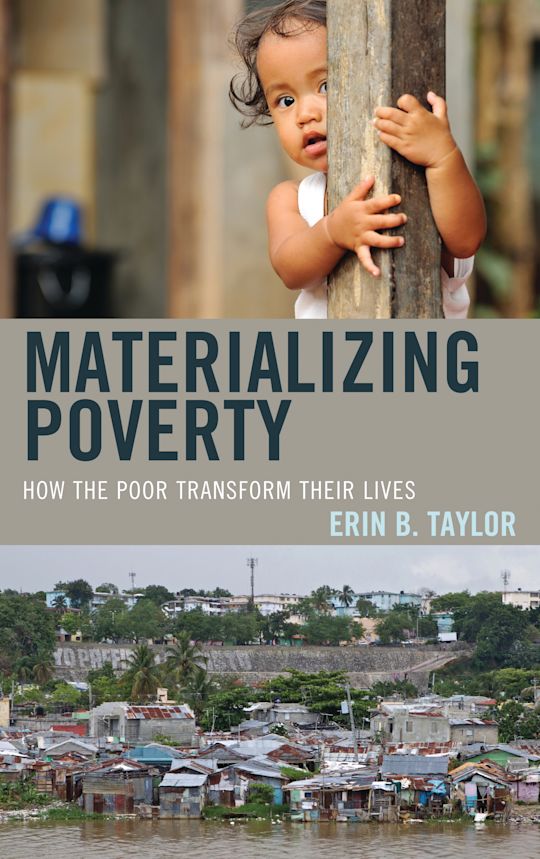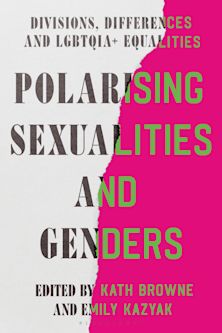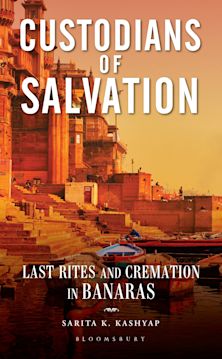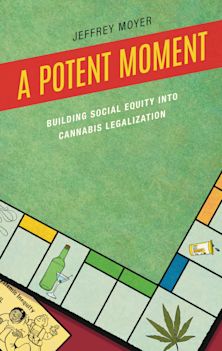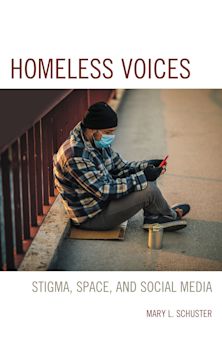- Home
- ACADEMIC
- Sociology
- Sociology of Inequality and Social Divisions
- Materializing Poverty
This product is usually dispatched within 1 week
- Delivery and returns info
-
Free CA delivery on orders $40 or over
You must sign in to add this item to your wishlist. Please sign in or create an account
Description
Poverty is generally defined as a lack of material resources. However, the relationships that poor people have with their possessions are not just about deprivation. Material things play a positive role in the lives of poor people: they help people to build social relationships, address inequalities, and fulfill emotional needs. In Materializing Poverty, anthropologist Erin Taylor explores how residents of a squatter settlement in Santo Domingo, Dominican Republic, use their material resources creatively to solve everyday problems and, over a few decades, radically transform the community. Their struggles show how these everyday engagements with materiality, rather than more dramatic efforts, generate social change and build futures.
Table of Contents
Acknowledgments
Introduction: The Wealth of Poverty
Chapter One. More than Artifacts: The Materiality of Poverty
Chapter Two. Building Futures: Squatting as an Enabling Constraint
Chapter Three. Too Big to Ignore: The State and the Persistence of Squatting
Chapter Four. ¡Crisis is Coming! Material Manifestations of Immaterial Ends
Chapter Five. Moving Places: Barrios as Barometers of National Progress
Chapter Six. Flexible Identities: Negotiating Values Through Material Forms
Coda
Glossary
Bibliography
Product details
| Published | Oct 10 2013 |
|---|---|
| Format | Hardback |
| Edition | 1st |
| Extent | 192 |
| ISBN | 9780759124219 |
| Imprint | Rowman & Littlefield Publishers |
| Illustrations | 11 b/w photos |
| Dimensions | 237 x 158 mm |
| Series | Anthropology of Daily Life |
| Publisher | Bloomsbury Publishing |
About the contributors
Reviews
-
What is poverty? In answer, we need more than statistics, we need to understand what is experienced as poverty. Through scholarly and incredibly rich ethnography Taylor shows the consequence of appreciating that it is the poor rather than the rich whose experience is dominated by materiality. Materializing Poverty is an account that respects both the creativity and the constraints that may accompany poverty. People from all disciplines would be better educated in this essential issue by reading this empathetic engagement which goes beyond the meaning of poverty to how the poor create meaning.
Daniel Miller, University College London
-
From its brilliant introduction to its final word, Materializing Poverty evokes the struggle and also the triumph of La Ciénaga where the intimate materialities of life are used to interpret the experience of being poor. Its account of the polyvalent way in which material forms are deployed in an urban barrio provides a new and provocative understanding of inequality in both a national and an international perspective. I feel confident that in the years to come this landmark ethnography will become a standard reference on poverty both within and beyond the Caribbean.
Diane Austin-Broos, Professor Emerita of Anthropology, University of Sydney









